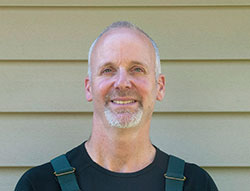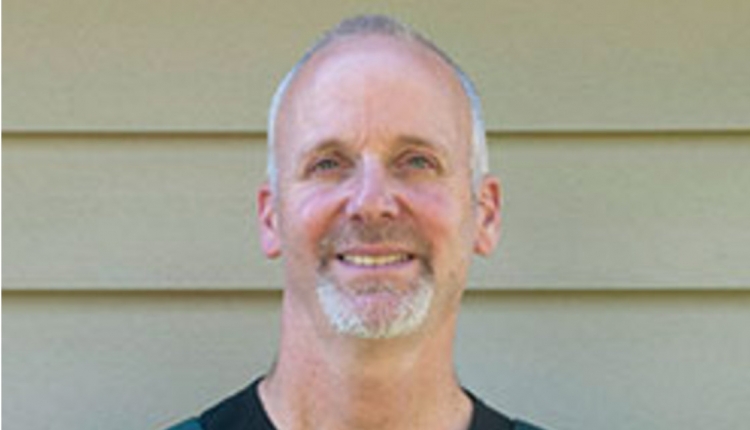The author is a partner and large animal veterinarian at Thumb Veterinary Services in Deckerville, Mich.

For those of us close to the cow, the charges seen of animal abuse and misconduct are disheartening and tragic. As the column’s title reflects “Cowside Practice,” I would like to share a few thoughts, suggestions, and encouragement to my friends on the farm.
Be a mentor
I was extremely fortunate as a youth to witness the true “love of cows,” fostered by Keith and Margaret Stroven. Not only did they take me under their wing by hiring me, but they went beyond being just employers.
They mentored me on how to handle the cows with a nurturing attitude. My eyes saw the extraordinary care this couple gave their herd. I came to realize and know that “it matters!” I remember laying blankets on sick cows in the winter, coaxing mouthfuls of colostrum to the slow newborn, and watching Doc Bannick tackle a tough calf delivery veterinarians call an O.B. or obstetrics. Those memories are still vivid.
Although much has changed in the dairy industry, I still admire those who love to mentor, teach, and inspire, not only the family members, but the dairy farm’s entire workforce. Just like parenting the family, sometimes our actions are not faultless, but our inward motives should always be evident.
Likewise, cameras can monitor behaviors, but cannot monitor inward motives and intentions. Our kids and employees need to see our engagement of animal industry as genuine, resulting in responsible animal stewardship. Most (not all) of the workforce that I rub shoulders with display a genuine desire to become better cow people. It still takes time and effort on our part though.
Oftentimes, due perhaps to the busy time budgets on the farm, we don’t tend to interact closely with those who care for the herd’s wellbeing. I am not discounting the normal discussions with the owner, herdsmen, and advisers. But, do we ask our cowside caregivers, “How it is really going?”
Do we ask the right questions, as in, what the best part of their day looks like? What areas of responsibility really tax their patience and subsequent behaviors? Does our workforce/family understand our farm’s core values?
My good friend, Cheyenne, oversees the young stock at the largest organic dairy in my home state. Her success in raising healthy replacements, obviously without antibiotics, is praiseworthy. Chey mentors faithfully and is rewarded with a great team of players. Not everyone has stayed employed there but understand her supervision; they were pushed to try. Luis, another stellar cow caregiver, makes getting cows pregnant seem effortless, although I beg to differ.
All of you know Cheyenne’s and Luis’s on your farms as well. So, we understand that responsible animal stewardship is “gifted” in greater measure to a select group of individuals. In my 35 years of practice, it has become obvious to me that these folks make a difference . . . a huge difference in successful dairy farms. Enable these individuals to affect the motivation of others on the farm team.
Be willing to change
Last week, as I worked through my long Monday herd check, I pondered the dairy well-being issues that we face. Halfway through the morning, I became aware of the number of slipping cows routed into the management rails for vet check. Perhaps a dozen cows attempted the sharp corner, only to slip and fall on the concrete. Fortunately, this particular Monday, all of the “down on concrete” cows were able to stand.
I knew better
Was this day, perhaps, more treacherous then previous herd checks? I scolded myself for not picking up on the previously right in front of me observation! Following the herd check, I visited with the owner and we came up with a couple of tweaks in his facilities to hopefully remedy the issue. It had become a habit of witnessing less than ideal surroundings and allowing it to go on.
Nick recently remodeled “my” management rail at his dad’s expanding Jersey herd. What a difference several inches make for our working pleasure. People watching footage of Doc Fox trying to negotiate fickle Jerseys in less than ideal restraint lanes would not be impressed.
So, ask your crew, “What changes in the facilities will make their work life easier and more efficient?” Improved working pleasure has shown to breed success, so work toward making those changes when possible.
We all acknowledge the negative repercussions of anti-agriculture interests in today’s “post-farm” era. This sentiment creates a larger challenge for consumers to have an accurate understanding of where food comes from. Consumer eyes on us, albeit, often with well-devised schemes of deception. We need to share all of our stories as openly transparent and honest as Fair Oak Farms has done. We need to address concerns and pay due diligence to providing great wellness to our “Foster Mothers of the Human Race.”









